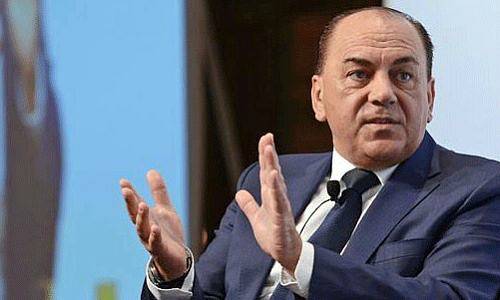Axel Weber Sees No Future for Bitcoin
Axel Weber is a proponent of blockchain, pushing for a further development of the technology. For bitcoin, the crypto currency based on blockchain however, the chairman of UBS sees no future.
Thumbs down for bitcoin, thumbs up for blockchain – that's Axel Weber's opinion about the two hottest achievement of the digital revolution.
The chairman of UBS spoke at length about the crypto currency at a debate organized by the Bank of England Open Forum, as London's «City A.M.» reported.
«Boom or Bust»
The weaknesses of bitcoin are well known. The currency has no institutional backing and isn't controlled by a government agency. Years after its inception bitcoin remains a toy of experts while the general public remains faithful to the good old Swiss franc or pound sterling. Further undermining the future of bitcoin is the volatility of its value.
According to Weber, bitcoin lacks a lender of last resort. Without one such, the private currency wouldn't take off, there's no escaping the «boom or bust», he said.
Adopting bitcoin as the currency of choice would mean that governments and central banks wouldn't be able to print more money in times of emergency. Some bitcoin proponents argue that the policy of cheap money is a failure.
Duty to Provide Liquidity
One of the duties of central banks is to provide liquidity to the financial markets, which they couldn't do with bitcoin. It was no surprise of course that Weber defended this line of policy, with his past as president of the German central bank.
«Liquidity is a public good, central banks are well placed to provide it,» said Minouche Shafik, Bank of England deputy governor, echoing the opinion of Weber.
Banks in general seem utterly skeptical about bitcoin's future. J.P. Morgan Chief Executive Jamie Dimon recently said that crypto currencies stood no chance against the dollar.
Blockchain, the technology used for bitcoin, enjoys much more credit among bankers. Several institutes are developing the technology and its potential use for financial transactions and services.
Not least UBS, one of the most active banks working on the technology.



























